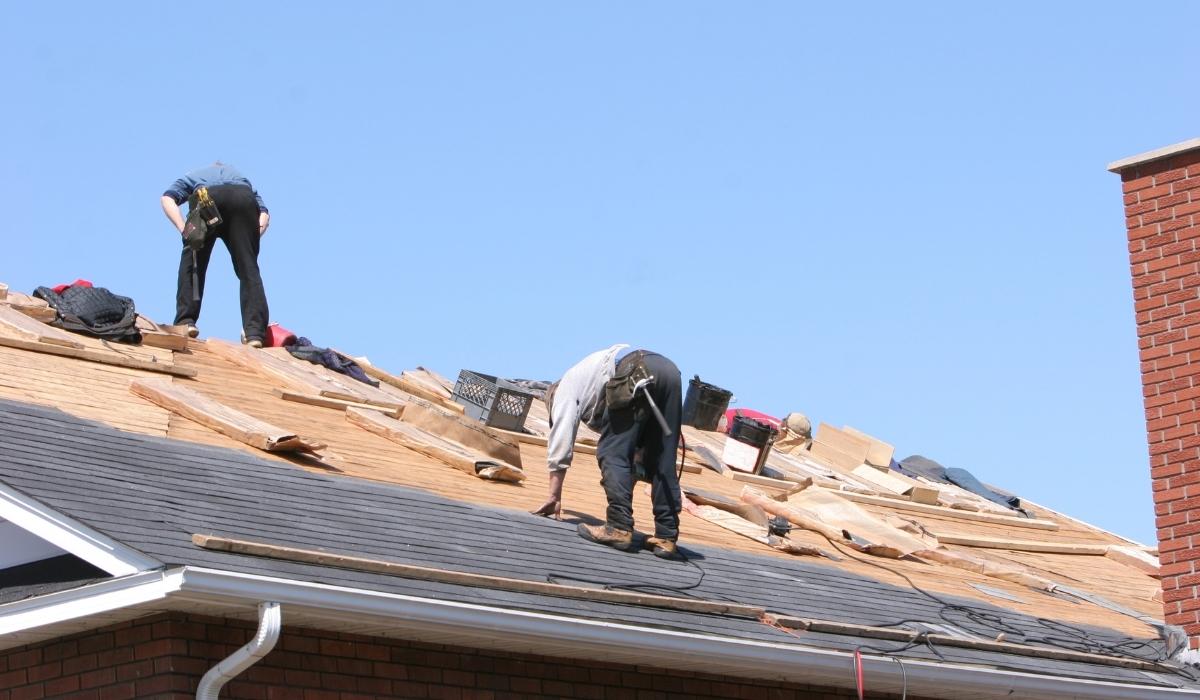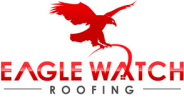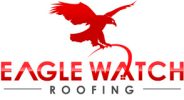Commercial Roofing Installation by Professional Roofers Near Me
If you’re a business owner, property manager, or facility decision-maker, you already know that your building’s roof does more than just cover your structure.
It protects your investment, your operations, and your peace of mind.
That’s why when it’s time for a commercial roofing installation, there’s no room for shortcuts.
You need skilled, licensed, and experienced professionals to get the job done right.
And that’s exactly where professional roofers come in.
In this article, we’re diving into what makes professional roofing installation near me not just a service, but a strategic decision.
From materials and timelines to warranties and weatherproofing, we’ll walk you through what to expect — and why choosing a roofing company near me with proven expertise is your best bet.
Why Commercial Roofing Is Different from Residential Roofing

Let’s start here — because not all roofs are created equal.
While residential roofs typically cover homes and use materials like asphalt shingles, commercial roofing installation deals with larger square footage, flat or low-slope structures, and heavy-duty materials like EPDM, TPO, metal panels, or modified bitumen.
That means a commercial roof has to be more than just sturdy. It has to be:
- Engineered to last
- Installed with precision
- Code-compliant
- Capable of withstanding commercial traffic, HVAC loads, and drainage challenges
You simply can’t hand that job over to anyone without the proper credentials.
You need a roofing contractor near me who understands the commercial side of the industry — inside and out.
What Happens During a Commercial Roofing Installation?
A full commercial roof installation isn’t a “one-day” process. It’s a carefully planned and executed project. Here’s what you can expect from start to end:
1. Inspection and Assessment
First, your professional roofers will inspect the existing roof or the construction plans (if it’s a new build).
They’ll evaluate slope, drainage, insulation, and ventilation to determine what system works best for your building.
2. Proposal and Material Selection
Next comes a detailed proposal with a cost breakdown, timeline, and suggested materials.
Whether you’re opting for TPO, PVC, metal, or built-up roofing, your roofing contractor near me should explain the pros and cons of each.
3. Permitting and Planning
Your local roofing company near me will handle permits and ensure all city and state codes are followed.
This is especially important for commercial jobs that require inspections during different phases of the project.
4. Tear-Off or Preparation
If replacing an old roof, the team will remove the existing materials. For new builds, they’ll prep the surface, install insulation, and lay a foundation membrane.
5. Installation of the Roofing System
This is where the magic happens. With industrial-grade tools, safety equipment, and methodical layering, professional roofers install your new system while maintaining strict safety and quality protocols.
6. Final Inspection and Warranty
Once installed, your contractor performs a quality check and ensures everything meets code. You’ll receive a warranty on labor and materials — a critical part of protecting your investment.
Why You Should Never Cut Corners on Commercial Roofing
Commercial roofs cover businesses, tenants, machinery, and in some cases — sensitive data or expensive inventory. A poorly installed roof can cause:
- Water damage
- Structural failure
- Operational downtime
- Code violations
- Insurance headaches
Even small mistakes in flashing or insulation can lead to big financial losses.
That’s why relying on professional roofing installation near me is more than a choice — it’s a necessity.
Benefits of Hiring Professional Roofers for Commercial Jobs
Let’s talk benefits. What do professional roofers bring to the table that others simply can’t?
✔️ Certified and Insured Workmanship
Legit pros carry full licensing, liability insurance, and workers’ compensation — so you’re covered in every way.
✔️ Experience with Complex Commercial Systems
From flat roofs and membrane systems to large-scale drainage configurations, commercial contractors know how to handle it all.
✔️ Equipment and Crew for Large Jobs
A roofing company near me with commercial capabilities has the manpower and machinery to work fast, safely, and at scale.
✔️ Compliance with Local Codes and Safety Regulations
They’ll know which building codes apply in your area and ensure your project passes every inspection.
✔️ Long-Term Warranties
Many manufacturers offer extended warranties only if the system is installed by certified professionals.
Common Commercial Roofing Systems Explained
There are several systems to choose from — here are the most common types installed by professional roofing installation near me:
▸ TPO (Thermoplastic Polyolefin)
Lightweight, energy-efficient, and easy to install. Popular for flat roofs.
▸ EPDM (Ethylene Propylene Diene Monomer)
A durable, rubber-based option with excellent weather resistance.
▸ PVC (Polyvinyl Chloride)
Great for restaurants and facilities that deal with grease or chemicals.
▸ Metal Roofing
Long lifespan, low maintenance, and modern appeal. Ideal for sloped commercial roofs.
▸ Built-Up Roofing (BUR)
Multiple layers of bitumen and fabric — excellent for durability and insulation.
How to Find a Roofing Company Near Me That You Can Trust
The key to a successful commercial roofing installation lies in choosing the right partner. Here’s what to look for when vetting companies:
- ✅ Local experience with commercial projects
- ✅ Licensed and bonded contractors
- ✅ Transparent pricing and timeline
- ✅ Proven track record with references
- ✅ Ability to handle large-scale logistics
- ✅ Offers ongoing maintenance after installation
Don’t settle for vague quotes or companies that only do residential work.
You want specialists in professional roofing installation near me — teams that understand your business needs and timeline pressures.
When Is the Best Time for Commercial Roofing Installation?
In general, spring and early fall offer the best weather for large roofing projects.
But professional roofers can install year-round with the right planning and materials.
Keep in mind that weather delays are common in extreme heat or cold, so plan accordingly.
A good roofing contractor near me will help you schedule around these factors and keep the project moving efficiently.
Signs It’s Time to Replace Your Commercial Roof
Still not sure if you need a new roof yet? Look for these signs:
- Leaks or water stains inside the building
- Blistering or cracking on the roof surface
- Pooling water on flat areas
- Rising energy costs (due to poor insulation)
- Roof is older than 20–25 years
- You’ve had multiple repairs in recent years
If any of these apply, it’s time to talk to a roofing company near me for a full inspection.
Protect Your Business. Choose Professional Roofing Installation Near Me.
A solid commercial roof isn’t just about shingles and sealants — it’s about protecting your people, your property, and your peace of mind.
Choosing professional roofers ensures your roof is installed right the first time, lasts longer, and performs better — no leaks, no lawsuits, no losses.
Don’t trust your investment to a “budget” handyman or a company that doesn’t specialize in commercial jobs. Trust the experts.
Trust a roofing contractor near me with the training, experience, and equipment to deliver real results.
✅ Call to Action
Looking for reliable, expert-level commercial roofing installation in your area? Don’t wait until it’s too late.
Contact Eagle Watch Roofing — your trusted team of professional roofers — to schedule an on-site inspection and get a free, no-obligation quote.
Whether you’re replacing an old roof or planning a new project, Eagle Watch Roofing will guide you from start to finish with unmatched professionalism, efficiency, and long-lasting results.
FAQs About Commercial Roofing Installation
How long does a commercial roofing installation take?
Most commercial roofing projects take anywhere from a few days to several weeks, depending on the size of the roof, the complexity of the structure, and the type of material used. For example, a flat, mid-sized commercial building may take about 5–7 business days with a full crew and ideal weather conditions. Projects involving extensive tear-offs or custom systems could take longer. Your contractor will provide a specific timeline based on your project scope.
Is it safe to run my business during the installation?
Yes, it’s generally safe to continue business operations during a commercial roof installation. Professional roofers are trained to work around active facilities and minimize disruptions. In some cases, loud noise or vibrations may be expected, so scheduling off-hours work or temporary adjustments in specific zones might help reduce impact. Your roofing team will coordinate closely with your management staff to maintain a safe and productive environment.
What’s the best material for my commercial roof?
The best roofing material depends on your building’s structure, budget, climate, and operational needs. TPO is known for its energy efficiency and affordability, while EPDM offers excellent durability and weather resistance. Metal roofing is another great option for sloped structures. A trusted roofing contractor near me can help your needs and recommend the most best system to make sure long-term performance and cost savings.
What’s included in a roofing warranty?
Roofing warranties often include coverage for materials, workmanship, or both. A manufacturer’s warranty usually covers material defects, while a contractor warranty covers labor-related issues. However, warranties vary by contractor and manufacturer, so be sure to ask your roofing contractor near me to explain the details — including coverage periods, conditions, and exclusions that might void the agreement (like improper maintenance).
Can I install solar panels on a commercial roof?
Yes, solar panels can be installed on many commercial roofs, especially low-slope systems. However, it’s importent to ensure the roof is structurally sound and in good condition before installation. Otherwise, future repairs may require removing the solar equipment. Consult with professional roofers before committing, as they’ll help assess load capacity and compatibility with your existing or new roof.
Will insurance cover roof replacement?
In many cases, insurance will cover partial or full roof replacement if damage is due to a covered event like hail, windstorms, or falling debris. However, wear and tear or neglect are typically not covered. An experienced roofing company near me can inspect the damage, document it properly, and assist with the insurance claim process to help you maximize your coverage and avoid unnecessary out-of-pocket costs.
Do commercial roofs need insulation?
Absolutely. Insulation is a critical part of a high-performing commercial roof. It helps regulate indoor temperature, reduces energy costs, and prevents moisture problems like condensation and mold. Many commercial roofing installation systems include insulation as an integrated layer, but it’s essential to confirm R-value requirements based on your local building codes and energy-efficiency goals.


